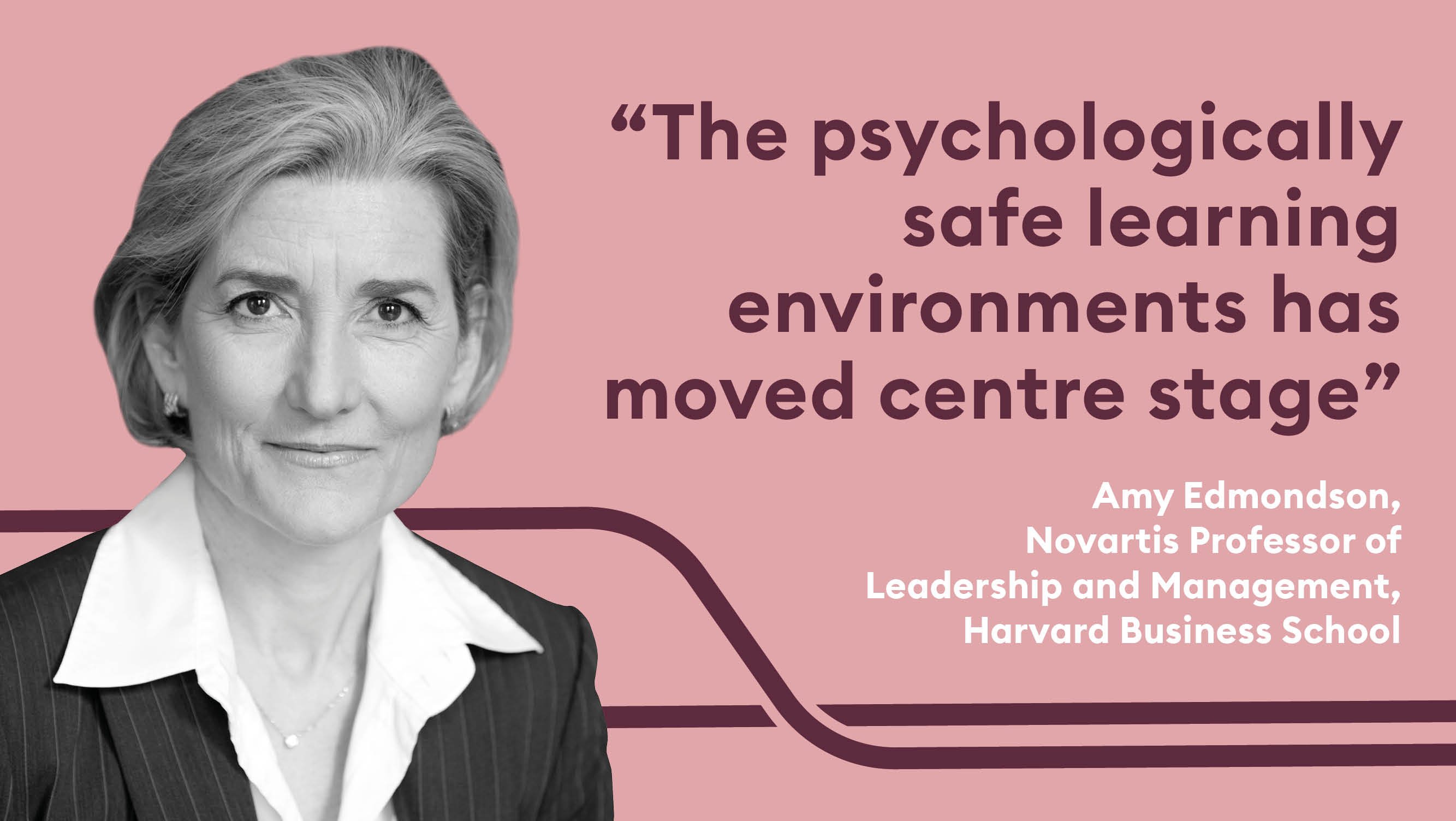The idea of a learning environment that is psychologically safe has become commonly discussed among business leaders. It has moved centre stage.
Why? Several years of media coverage - including much discussion of Google’s quest to build the perfect team through Project Aristotle - coupled with the impact of the pandemic has accelerated interest in what it takes to get people engaged in learning and problem-solving. It has become obvious that leadership is no longer about controlling behaviour, but rather inspiring and enabling people to keep learning and innovating.
The variety of learning approaches
Learning can happen in a variety of ways. There is room for classroom-based experiences, just as there is for online-based experiences. Similarly, people should be empowered to learn both individually and in teams. However, I do believe that certain learnings are best conveyed in teams when people get energy and connections from their peers. Without these bonds between people, individuals suffer psychologically, and innovation weakens.
Incorporating learning into daily work
Secondly, organizations need to find ways to build learning into daily work. This is what I call ‘learning as execution’. By making learning a part of the everyday, people are more reflective and aware of feedback available from work itself. It creates multi-faceted problem-solving and helps drive innovation. It’s about applied learning, rather than just learning in a classroom and then trying to execute down the line.
The trend Towards bitesized learning
This is why we’re seeing a trend towards more bitesized learning. People can get online for 30 minutes to study a module and then spend the rest of the day practising what they have learned, as opposed to going offsite for several days and then trying to apply that learning when they return.
Lifelong learning and the need for psychological safety
What we know about the future is that we’re going to need to keep retooling people. The chaotic nature of our world means that providing a psychologically safe space to learn is even more important. Businesses need to hire learners, as developing technical and interpersonal skills is going to be a lifelong endeavour for us all.
Why learning is the future of work
We know that the skills needed to succeed at work are evolving fast and will continue to do so ever more rapidly.
At the heart of meeting this challenge is learning.
Without effective learning and development programmes, modern training methods and a culture that puts learning front and centre, reskilling and upskilling initiatives cannot succeed. Read our latest Whitepaper focussing on the Future of Learning.
Embed learning in your leadership development
Future Talent Learning can help employees develop the human skills needed to transition from managing to leading. We provide immersive learning experiences for busy professionals at all levels. Our courses focus on the most in-demand human-centred skills that can be applied and practised in the flow of work.
We offer a range of ready-to-go short courses and 100% virtual mini-MBA that delivers against two management apprenticeships, funded through your Apprenticeship Levy.
More about Amy Edmondson
Amy Edmondson is the Novartis Professor of Leadership and Management at the Harvard Business School, a chair established to support the study of human interactions that lead to the creation of successful enterprises that contribute to the betterment of society.
She studies teaming, psychological safety, and organisational learning. Her articles have been published in numerous academic and management outlets, including Administrative Science Quarterly, Academy of Management Journal, Harvard Business Review and California Management Review.
Her most recent book, The Fearless Organization: Creating Psychological Safety in the Workplace for Learning, Innovation and Growth (Wiley, 2019), offers a practical guide for organisations serious about success in the modern economy and has been translated into 15 languages.

















